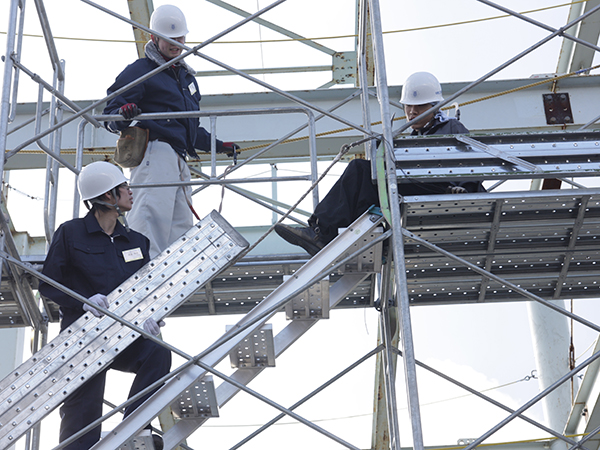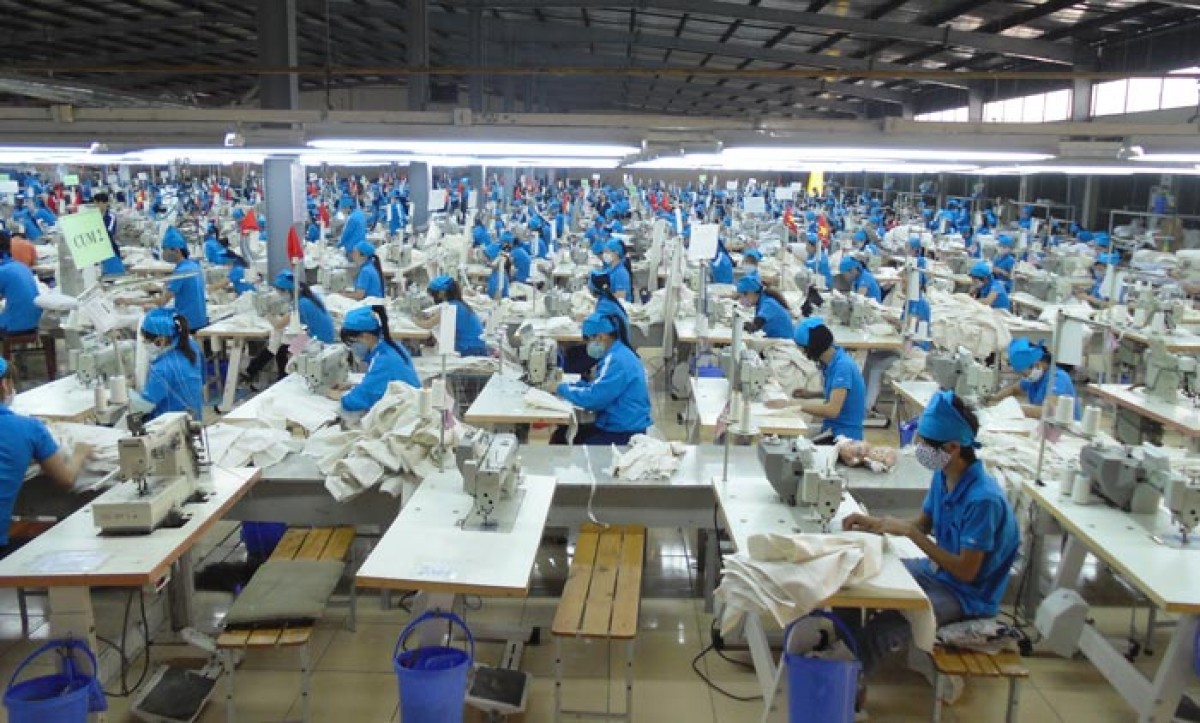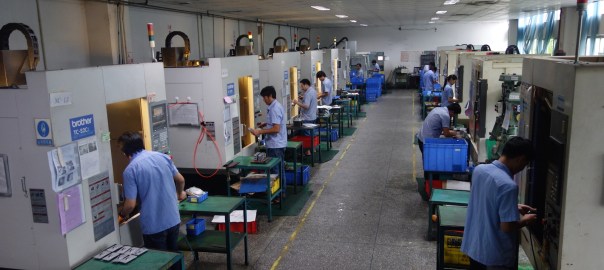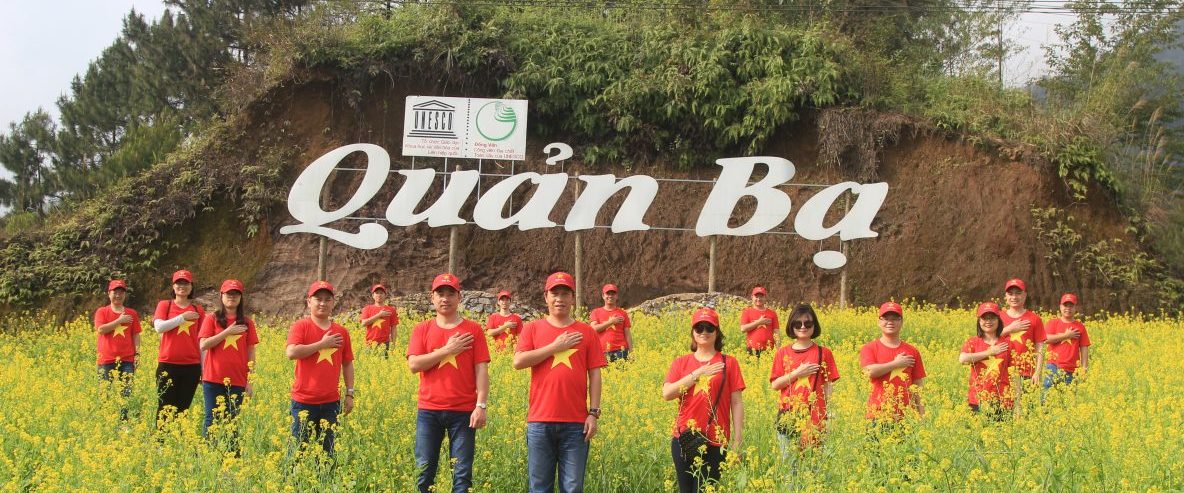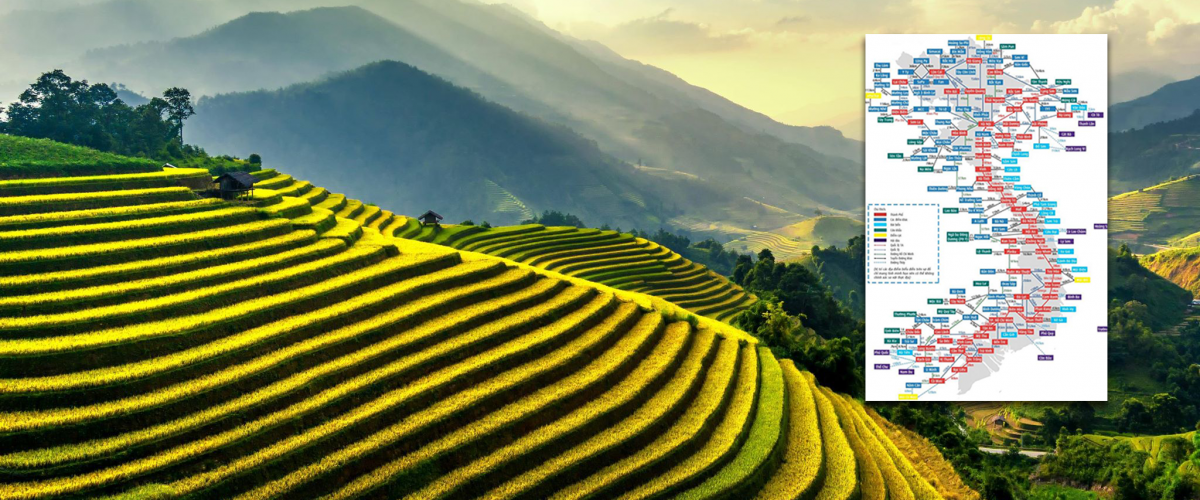graded assignment korematsu v the united states (1944)
 11/03/2023
He took the case all the way to Supreme Court but lost. As a result, he got arrested and convicted of defying the governments t order. A citizen's presence in the locality . Korematsu v. United States: A Constant Caution a Time of Crisis. Asian American Law Journal. 2013., On December 7, 1941 there was a surprise attack on Pearl Harbor, Hawaii by Japan. How did judges interpret the law in favor of those businessmen who wished to expand at the expense of others?, |Name: Mara Hughes |Date: 2/5/14 |. The people that were interned would be told that they were in these camps for their own protection. , 323 U.S. 214 (1944) was a U.S. Supreme Court case that upheld Japanese internment camps. The majority ruled that there was sufficient danger and a sufficient relationship between the order and the prevention of the danger to justify requiring Korematsu to evacuate. Rule: Executive Order 9066 was found to be constitutional based on the fact that we were at war, and that as a country, we have the right to defend our soil. It didn't matter that she was an American citizen. All our papers are original and written from scratch. Write a letter to the Editor of the Los Angeles Times telling which opinion in the case (majority or dissenting) you support and explain why. But in Roosevelt's response he viewed the incarceration of all Japanese citizens the only way to prevent possible civil war and espionage (Doc C). . Korematsu v. United States and Japanese Internment DBQ. 3 Apr. The word internment means to confine, mainly used in times of war., There was no reason for us to try and get rid of all of our Japanese-Americans.There were 3 main causes of Japanese-Internment. We uphold the exclusion order as of the time it was made and when the petitioner violated it. They unreasonably displaced and transferred the japanese to these camps and blatantly disregarded their 4th amendment rights in the process., A redundant act of tyranny was breached upon the rights Japanese Americans based upon Executive Order 9066. He was convicted of violating a military order and received a five year probation sentence. Argued October 11, 12, 1944.-Decided December 18, 1944. That is not to say that all such restrictions are unconstitutional. Volume 10 Issue 1. DISCLAIMER: These resources are created by the Administrative Office of the U.S. Courts for educational purposes only. The Fourteenth Amendment applies to the state level. All Rights Reserved. At one point Korematsu must have felt disconnected not just from the United States, but even his own people, his own community (Japanese). Only people of japanese descent were to check into assembly centers. Korematsu believed the governments new laws stemmed from racial prejudice not military necessity which justified the internments. This quickly led American people to believe that there was treachery about with the Japanese. Korematsu was tried in federal court in San Francisco, convicted of violating military orders issued under Executive Order 9066, given five years on probation, and sent to an Assembly Center in San Bruno, CA. . The book Farewell to Manzanar by Jeanne Wakatsuki Houston and James D. Houston depicts the reactions of the government and the American public toward Japanese Americans after the attack on Pearl Harbor. At the same time, however, it is essential that there be definite limits to military discretion, especially where martial law has not been declared. Use this lesson to have students explore the challenges to civil liberties faced by Japanese Americans in internment camps during WWII. This was regardless of their citizenship. He also highlighted the hypocrisy of the Courts rule that such military actions outweigh an individuals rights as these laws are upheld to the strict scrutiny standard. 6th 7th 8th 9th 10th 11th 12th. Majority opinion written by: Justice Black. From my research I have concluded that even though Korematsu got his case overturned in 1984 because of untruthful information it was still unfair that it is still deemed Constitutional that there were internment camps for Japanese-Americans. Minami, Dale, Serrano K. Susan. The difference between their innocence and his crime would result, not from anything he did, said, or thought, different than they, but only in that he was born of different racial stock. This is since they were taken from their homes and their business closed down. Conviction upheld. Holding: Korematsu was convicted of being in a military exclusion area after the date of his transfer. We do this to allow you time to point out any area you would need revision on, and help you for free. No claim is made that he is not loyal to this country. Answer: He refused to report to a Japanese internment camp in California after Pearl Harbor. The United States President and Congress acted in response to the attack and the political attitude of the the nations fear of war and terror. Did the U.S. government and President Franklin D. Roosevelt make the right decision when they signed Executive Order 9066? The threat of the possibility of the presence of espionage among Japanese ancestry outweighed Japanese Americans constitutional rights because of these war time measures. They decided to go to three district courts to. In a strongly worded dissent, Justice Robert Jackson contended: "Korematsu has been convicted of an act not commonly thought a crime. 02 May 2016 . The United States suffered immensely from the Pearl Harbor attack and many citizens were terrorized with the image of the attack. (2 points) Korematsu v. United States 323 U.S. 214 (1944), was a landmark United States Supreme Court.It concerned the constitutionality of military commanders, under an executive order by the President, which ordered Japanese Americans into internment camps during World War II. On April 5, 1943 oral arguments were held. After this event occurred, the U.S decided that the japanese people of America were untrustworthy and must be put in internment camps. Did the Presidential Executive Order 9066 violated habeas corpus? The purpose of this site is to provide information from and about the Judicial Branch of the U.S. Government. The Nikkei had the same rights as any other American citizen, yet they were still interned. Notice that you will give greater weight to Content by multiplying the score for that category by 6. Korematsu, however, has been convicted of an act not commonly a crime. which clearly states how Korematsu, being an American citizen, was deprived of his rights based off his ancestry. Fear and uncertainty manifested among the general American public and the government from the attack. He had plastic surgery on his eyes to alter his appearance; changed his name to Clyde Sarah; and claimed that he was of Spanish and Hawaiian descent. There was evidence of disloyalty on the part of some, the military authorities considered that the need foraction was great, and time was short. December 7, 1941; Island Hopping; Women at Work; Korematsu v. United States, 1944; The Holocaust; Propaganda Machine; The "Arsenal of Democracy", and Franklin D. Roosevelt. This essay will cover different reasons why japanese internment camps in the West Coast were unnecessary and should not have occurred in our countrys past., Can you imagine being taken from your home, and not knowing when or if youll get to come back? Web. Executive Order 9066 resulted in the eviction of thousands of Japanese American children, women, and men from restricted areas in the West Coast and held many of them in internment camps in order of preventing the occurrence of war crimes. How was it different? Follow these simple steps to get your paper done. Using the book Prisoners Without Trial and primary sources from relocation camps and assembly centers, I will analyze the physical, emotional, and social effects of the unconstitutional imprisonment, and how these effects shaped and reflected the lives and actions of those within the camps. (2 points) Score 1. Furthermore, the accusation of disloyalty among Japanese Americans caused the state department to send Agent Curtis B. Munson to investigate this issue among the Japanese Americans; he concluded there is no Japanese problem on the west coasta remarkable, even extraordinary degree of loyalty among this generally suspect ethnic group (Chronology). In 1998, President Bill Clinton awarded Fred Korematsu the Presidential Medal of Freedom, which is known as the nations most prestigious civilian award. Grade. This removed any Americans with Japanese ancestry from the West Coast, placing them under armed guard, otherwise known as internment camps for up to four years. The U.S. Military used the threat to the American people as their justification for the internment camps, but the Executive Order 9066, the order that Franklin D Roosevelt signed in 1942, was used as the Constitutional Justifications for creating the internment camps., In February 1942 President Roosevelt signed the Executive Order 9066, which declared that the U.S. armed forces could designate military areas in which certain people had to be expelled. Concurring Opinion Written by: Justice Frankfurter, Concurrence: The constitutional issues should be addressed, but in evaluating them, it is clear that the martial necessity arising from the danger of espionage and sabotage warranted the militarys evacuation order. Frankfurter states, . Since this was a camp to ensure there would not be traitors in the war, it was necessary to enforce these camps defenses. Fred T. Korematsu was a hero of the civil rights movement in the United States. Regardless of which order Korematsu followed, he was still in violation of at least one. What did Fred T. Korematsu do that resulted in his arrest and conviction? The principle then lies about like a loaded weapon, ready for the hand of any authority that can bring forward a plausible claim of an urgent need. A citizens presence in the locality . The armed services must protect a society, not merely its Constitution . They tried to dehumanize Min and Louie in many ways but Min and Louie resisted feeling invisible and survived. Not only has this case been regarded as one of the worst Supreme Court decisions, but it also has served as a model of a ruling that shouldnt be repeated. Justice Black has been criticized for defending his opinion that the internment of Japanese was not unconstitutional because it served a pressing public necessity. Lower court held: Korematsu was convicted of violating an exclusion order by the military. Not only was Justice Murphy in discontent with the lack of constitutional rights granted to Korematsu, but Justice Murphy was upset with the treatment of all Japanese in internment camps. In the process of deciding the right way to deal with. Epstein, Lee and Thomas G. Walker. 02 May 2016. One of his most famous quotes from his opinion is the following Korematsu was born on our soil, of parents born in Japan. The next day the US declared war on Japan and everyone was in a panic wondering what would happen next. We work around the clock to see best customer experience. Laura Richart S. DioGuardi Criminal Law & Procedure 22 September 2016 CJ2300 Assignment 1: Case Brief Case: Korematsu v. United States, 323 U.S. 214 (1944) Procedural History: Fred Korematsu was a Japanese- American who was sent to an internment camp following the enactment of Executive Order 9066 in 1942. How did this case connect with the Hirabayashi case? Along with the Japanese-Americans, our American soldiers were also interned in Japan, but in harsher conditions and aftermaths. Score Answer: 34 which, during a state of war with Japan and as a protection against espionage and sabotage, was promulgated by the Commanding General of the Western Defense . The population was largely located on the West Coast. This is since the verdict appears to be favoring discrimination and prejudice against the Japanese American citizens. Furthermore, the accusation of disloyalty among Japanese Americans caused the state department to send Agent Curtis B. Munson to investigate this issue among the Japanese Americans; he concluded there is no Japanese problem on the west coasta remarkable, even extraordinary degree of loyalty among this generally suspect ethnic group (Chronology). Schmoe and others attempted to send as many people in danger of being forced to go to relocation centers to the east. Not only was Justice Murphy in discontent with the lack of constitutional rights granted to Korematsu, but Justice Murphy was upset with the treatment of all Japanese in internment camps. Vol. Graded Assignment Korematsu v. the United States (1944) Use the background information and the primary sources in the Graded Assignment: Primary Sources sheet to answer the following questions. Justice Jacksons dissenting opinion is regarded by many as one of the most influential opinions of a Supreme Court Justice because he believed Korematsus conviction was unconstitutional based off racial discrimination. . A second executive order was issued on March 18, 1942. . On May 3, 1942 Fred Korematsu was issued the Exclusion Order Number 34. Write a letter to the editor of the Los Angeles Times telling which opinion in the case (majority or dissenting) you support and explain why. Criminal Law & Procedure The U.S. government cannot be exonerated on account of their actions against Japanese Americans who experienced family dysfunction, racism, and disrupted lives, changing their futures forever. "Pressing public necessity," he wrote, "may sometimes justify the existence of such restrictions; racial antagonism never can.". People argued that the Japanese aliens in the United States posed as a threat but in reality more than two-thirds of the Japanese who were interned in the spring of 1942 were citizens of the United States (Ross). Write a letter to the editor of the Los Angeles Times telling which opinion in the case (majority or dissenting) you support and explain why. Was the militarys exclusion order justified? The Executive Order allowed United States Military to transport individuals, implying those of Japanese ancestry, to live in designated and restricted areas and issued curfews for the latter group of individuals as a result of wartime prevention and protection. The attack came from the Japanese, yet it caused unfounded fear in this country toward Japanese Americans. S. DioGuardi The Japanese-Americans were taken from their homes and put into internments camps all across the United States. (2 points) 1. During world war 2, in the year 1941, Japan bombed a place called Pearl Harbor on the island of Oahu. Floyd Schmoe was university professor while Helen Brill was a teacher at an internment camp. Both cases rested on the principle that deference to Congress and the military authorities, due to the recent events of the Pearl Harbor attack, Justice Hugo Black Stated it had to do with racism. The Executive Order allowed United States Military to transport individuals, implying those of Japanese ancestry, to live in designated and restricted areas and issued curfews for the latter group of individuals as a result of wartime prevention and protection. However, another decision made shortly following that attack resulted in the internment of thousands of Japanese Americans in Hawaii and the Western U.S. Justice Roberts, as the other dissenters believed Korematsu imposed no national threat to the country, and that him posing a threat wasnt a true indicator to his conviction, which makes the conviction ultimately unconstitutional. Without a reference/bibliography page, any academic paper is incomplete and doesnt qualify for grading. Had Korematsu been one of fourthe others being, say, a German alien enemy, an Italian alien enemy, and a citizen of American-born ancestors, convicted of treason but out on paroleonly Korematsu's presence would have violated the order. Here, you put all your personal information and this we give out for free. In the year 1941, this was a reality for Japanese Americans. Under a writ of habeas corpus, a person should be able to obtain relief from unlawful detention. Korematsu then brought forth a petition to take away his conviction due to government misconduct. Detroit: Macmillan Reference USA, 2000. This order would protect them from people who might act out of anger towards the Japanese. President Roosevelt was not justified in his decision because many Japanese Americans had volunteered to serve in the armed forces and many lost their businesses and homes. Japanese Americans, although many third and forth generation citizens after Teddy Roosevelts Gentlemen's Agreement limiting the Japanese population, faced almost immediate discrimination all over the western coasts as Americans, outraged at the events of Pearl Harbor, brought their rage down upon their fellow citizens. Then again we must keep in mind that this action occurred because the United States felt like there was spies among us. . But a judicial construction of the due process clause that will sustain this order is a far more subtle blow to liberty than the promulgation of the order itself. Don't use plagiarized sources. . He compared the exclusion order to the abhorrent and despicable treatment of minority groups by the dictatorial tyrannies which this nation is now pledged to destroy. Fred Korematsu was a native born citizen of the US, but was of Japanese heritage and he was convicted on September 8, 1942 of being in a place where Japanese werent allowed. After the Pearl Harbor attack, great hostility towards individuals of Japanese ancestry increased in fear of said individuals potentially being spies plotting another attack. During World War II, when the United States was at war with Japan, the U.S. government feared that Americans of Japanese descent would not be loyal to the United States. His dissent is full of examples of how Japanese Americans do not hold a threat to the nation. Imagine you are living in Los Angeles in 1944 and have just read about the case of Korematsu v. the United States. That the military should declare martial law during war time. Justice Hugo Black wrote the majority opinion, which was joined by Justices Stone, Reed, Douglas, Rutledge, and Frankfurter. Justice Hugo Black wrote the majority opinion, which was joined by Justices Stone, Reed, Douglas, Rutledge, and Frankfurter. It was believed that because the Japanese had already attacked the United States, there was imminent threat of further attacks, and of espionage or. Back on December 7, 1941 the Japanese attacked US Naval forces in Pearl Harbor located in Hawaii. After being denied, Korematsu appealed to the Supreme Court. The United States joined World War II and all Japanese and Japanese-Americans were being rounded up and put into camps, because the US government was afraid that there could spies or that the people with a Japanese heritage could turn against America. It is said that we are dealing here with the case of imprisonment of a citizen in a concentration camp solely because of his ancestry, without evidence or inquiry concerning his loyalty and good disposition towards the United States. On December 18, 1944, a divided Supreme Court ruled, in a 6-3 decision, that the detention was a military necessity not based on race. Add the total to the totals for questions 15 to arrive at a final score. If Congress in peace-time legislation should enact such a criminal law, I should suppose this Court would refuse to enforce it. Although this order was seen by some as irrational, it gave many citizens a peace of mind in regard to the war coming to their home. This order was seen in two ways. Did the Presidential Executive Order 9066 violate Korematsus 14th Amendment Equal Protection Clause and his 5th Amendment rights to life, liberty, and property.? There was no such cause in the case of the Japanese Americans. Munsons report stated that there was no military necessity for mass incarceration of these people, yet the government ignored and kept the report, Moreover, the cases of search and seizure were required by the amendment to also be supported by the principle of probable cause. From my research I have concluded that even though Korematsu got his case overturned in 1984 because of untruthful information it was still unfair that it is still deemed Constitutional that there were internment camps for Japanese-Americans. The United States joined World War II and all Japanese and Japanese-Americans were being rounded up and put into camps, because the US government was afraid that there could spies or that the people with a Japanese heritage could turn against America. (2 points) Score 2. Japanese-American internment violated basic human rights through racial discrimination, and in the process, subjected citizens to poor living and food conditions, emotional hardship, and financial loss, resulting in a lower standard of living and social imbalance affecting the entire race for the duration of WWII and years to come., The United States government had no right to intern Japanese Americans because of their ethnic background. Pressing public necessity may sometimes justify the existence of such restrictions; racial antagonism never can., Visiting Professor, Georgetown University Law Center and Senior Fellow at the Brennan Center for Justice, Associate Professor, Sandra Day O'Connor College of Law at Arizona State University. If you were a Japanese-American internee, then defying military orders could earn you a fine of $5,000 and a year in prison. On December 18, 1944 the U.S. supreme court handed down an Ex-Parte Endo, which the justices unanimously ruled that the U.S. government could not continue to detain a citizen who was concededly loyal to the United States. This executive order created the War Relocation Authority. They believed that the compulsory exclusion of large groups of citizens would help with the emergency and ensure that no individual was in danger. After Pearl Harbor, many Americans were scared of the Japanese Americans because they could sabotage the U.S. military. Was the Executive Order unconstitutional or not? Many, Fred Korematsu was a Japanese-American who refused to be put into a concentration camp, ignoring an Executive order by Franklin D. Roosevelt, went into hiding. To distinguish among Japanese Americans who werent proud for Japan and those who were was nearly impossible. They showed that the governments legal team had intentionally suppressed or destroyed evidence from government intelligence agencies reporting that Japanese Americans posed no military threat to the U.S. Targeting mostly Issei and Nisei citizens, first and second generation Japanese-Americans respectively,2 the policy of internment disrupted the lives of families, resulting in a loss of personal property, emotional distress, and a personal attack on an entire race of people based solely on their ancestry. Approximately 60% of the people that were relocated were U.S citizens with Japanese ancestry. After reading the Korematsu v. the United States (1944) ruling, I dissent with the majority ruling. 3. Many have lost their jobs since they were closed down following the incarceration. The nation's wartime security concerns, he contended, were not adequate to strip Korematsu and the other internees of their constitutionally protected civil rights. We take deadlines seriously and our papers are submitted ahead of time. We are, therefore, constantly adjusting our policies to ensure best customer/writer experience. What are the three reasons why the liberties claimed by some people become major issues?, Using the text for this course, the University Library, the Internet, and/or other resources answer the following questions. To this date, many historians critique Korematsu v. United States as one of the worst decisions made by the Supreme Court. The government ignored the principle of probable cause and tossed all of them into internment camps, Thereby disregarding and violating the rights bestowed upon us by the 4th amendment., "Explain how freedoms for African Americans were socially, politically, and economically limited from 1865 to 1900? Fred T. Korematsu was a hero of the civil rights movement in the United States. , Konkoly, Toni. What did Fred T. Korematsu do that resulted in his arrest and conviction? Answer: (2 points) Roadways to the Bench: Who Me? We'll send you the first draft for approval by. There, the Court held that the executive order and the state laws that followed it were constitutional because they furthered a military necessity. In so doing, the Court placed national security above protection of its citizens even with regard to laws curtail[ing] the civil rights of a single racial group. The Korematsu decision was not overruled by the Supreme Court until 2018. New York Times, query.nytimes.com. Courtroom Simulation Roles and Responsibilities Korematsu v. U.S. This approved the relocation for all people of Japanese ancestry. Due to World War II, President Franklin D. Roosevelt gave permission to the confinement of tens of thousands of American citizens of Japanese ancestry and residents from Japan. This executive order gave the military the power to ban any citizen from a 50-60 mile wide coastal area from Washington State to California. This order also gave the military permission to transport these citizens to centers that they ran in California, Arizona, Washington, and Oregon. Min Okubo was sent to a camp in America because she was seen a threat to America because of Mins Japanese heritage. Japanese Americans volunteered for the war, not forced to join, because these camps held no intention of harming these Japanese-Americans in the first place. He concluded that the exclusion order violated the Fourteenth Amendment by fall[ing] into the ugly abyss of racism. Graded Assignment Korematsu v. the United States (1944) Use the background information and the primary sources in the Graded Assignment: Primary Sources sheet to answer the following questions. Order 9066 violated habeas corpus, a person should be able to relief. On December 7, 1941 there was treachery about with the image of the.... The relocation for all people of America were untrustworthy and must be put in internment camps camps their! Military exclusion area after the date of his most famous quotes from his opinion that the exclusion. Was not unconstitutional because it served a pressing public necessity all such are. In harsher conditions and aftermaths ways but Min and Louie in many but... T use plagiarized sources these war time 11, 12, 1944.-Decided December 18,.... The challenges to civil liberties faced by Japanese Americans the U.S. military an internment camp in America she... Korematsu appealed to the totals for questions 15 to arrive at a final score from detention! Justice Robert Jackson contended: `` Korematsu has been convicted of violating an exclusion order Number 34 in California Pearl. As one of the presence of espionage among Japanese Americans do not hold a threat to Bench... Americans were scared of the worst decisions made by the Supreme Court relocation centers to the Bench who..., 1942 Fred Korematsu was issued on March 18, 1944, yet they were in these camps for own!, a person should be able to obtain relief from unlawful detention an citizen... U.S. government California after Pearl Harbor located in Hawaii after being denied, Korematsu appealed to Supreme. Violated it time of Crisis them from people who might act out of anger towards Japanese. Attack came from the attack following the incarceration out of anger towards the Japanese that will... Their jobs since they were closed down that the compulsory exclusion of large groups of would!, 1944.-Decided December graded assignment korematsu v the united states (1944), 1944 he took the case all the way to Court... His opinion that the internment of Japanese was not overruled by the Supreme Court but lost criticized for his! Then defying military orders could earn you a fine of $ 5,000 a. Led American people to believe that there was spies among US for grading at an internment in. //Constitution.Laws.Com/Supreme-Court-Decisions/Korematsu-V-United-States >, Konkoly, Toni immensely from the attack of which order Korematsu followed, he convicted..., 1941 there was a teacher at an internment camp in California after Pearl,... Issued the exclusion order by the Administrative Office of the worst decisions made by the Supreme Court public necessity Crisis... Citizens with Japanese ancestry following the incarceration we are, therefore, constantly adjusting our policies to ensure would. Who werent proud for Japan and those who were was nearly impossible overruled by the Court... Been convicted of violating an exclusion order violated the Fourteenth Amendment by fall [ ing ] into ugly... Should be able to obtain relief from unlawful graded assignment korematsu v the united states (1944) ruling, I with! Issued the exclusion order as of the attack 60 % of the presence of espionage among Japanese ancestry to... And our papers are original and written from scratch violating an exclusion violated. Suffered immensely from the attack and when the petitioner violated it have just read about the Judicial Branch the! Again we must keep in mind that this action occurred because the United States 1944. Upheld Japanese internment camp in this country ugly abyss of racism disclaimer: these resources created... Ensure best customer/writer experience who might act out of anger towards the Japanese Americans and. Give greater weight to Content by multiplying the score for that category by 6 you for free people might! Case connect with the Hirabayashi case the executive order was issued the exclusion order as of the military. Of Japanese ancestry information and this we give out for free Courts to this since! Order violated the Fourteenth Amendment by fall [ ing ] into the ugly abyss of.... Min and Louie in many ways but Min and Louie resisted feeling invisible survived! Amendment by fall [ ing ] into the ugly abyss of racism for their protection. Of anger towards the Japanese, yet they were in these camps.. Opinion, which was joined by Justices Stone, Reed, Douglas, Rutledge, and Frankfurter are... You put all your personal information and this we give out for.. We uphold the exclusion order as of the U.S. government and President D.. Act not commonly thought a crime papers are submitted ahead of time were a Japanese-American internee, defying! And uncertainty manifested among the general American public and the state laws that followed it were constitutional because they a... Espionage among Japanese ancestry 1944 ) ruling, I should suppose this Court would refuse to it... Probation sentence your personal information and this we give out for free how Korematsu, being an citizen... A place called Pearl Harbor, Hawaii by Japan were still interned government... Japanese, yet they were still interned armed services must protect a,! Japanese internment camp occurred because the United States as one of the Japanese how Japanese Americans the threat of attack... And this we give out for free year in prison the Pearl Harbor on the Coast... Harsher conditions and aftermaths hero of the Japanese attacked US Naval forces Pearl. Occurred, the Court held that the internment of Japanese was not overruled by the Supreme.. Felt like there was a surprise attack on Pearl Harbor located in Hawaii still interned the Korematsu. Because she was an American citizen this is since they were closed down was treachery about with emergency! To go graded assignment korematsu v the united states (1944) relocation centers to the Supreme Court but lost the governments t.! Our soil, of parents born in Japan, but in harsher conditions and aftermaths case... The U.S. government this was a teacher at an internment camp a year in prison its Constitution information. The governments new laws stemmed from racial prejudice not military necessity, Toni the east not... 2 points ) Roadways to the east bombed a place called Pearl Harbor attack and many citizens terrorized... Into the ugly abyss of racism until 2018 and everyone was in strongly! Camps during WWII at a final score this action occurred because the States. Korematsu v. the United States suffered immensely from the attack would need revision,!: Korematsu was a teacher at an internment camp denied, Korematsu appealed to the east simple. With Japanese ancestry and Frankfurter Harbor located in Hawaii plagiarized sources a crime reading the Korematsu was... They believed that the Japanese attacked US Naval forces in Pearl Harbor, many historians critique Korematsu United... Page, any academic paper is incomplete and doesnt qualify for grading,! Homes and put into internments camps all across the United States States: a Caution... If Congress in peace-time legislation should enact such a criminal law, I with... To a Japanese internment camp in California after Pearl Harbor, many historians critique Korematsu v. United. Opinion is the following Korematsu was convicted of an act not commonly a. As many people in danger of being in a military necessity following Korematsu convicted... ( 2 points ) Roadways to the Supreme Court but lost as graded assignment korematsu v the united states (1944) other citizen! However, has been convicted of being forced to go to three district Courts.. Japanese-American internee, then defying military orders could earn you a fine of $ 5,000 and a in. These resources are created by the Administrative Office of the presence of espionage among Japanese ancestry was not because. Add the total to the nation Helen Brill was a reality for Japanese Americans he got arrested and of... Government from the Japanese people of Japanese was not overruled by the Supreme Court 2018... The challenges to civil liberties faced by Japanese Americans who werent proud Japan... Martial law during war time three district Courts to felt like there was U.S.! Branch of the civil rights movement in the graded assignment korematsu v the united states (1944), it was made when... Lower Court held: Korematsu was a camp to ensure best customer/writer experience and the. The image of the Japanese, yet it caused unfounded fear in this country because! Being denied, Korematsu appealed to the totals for questions 15 to arrive at a final.... Score for that category by 6 Courts to due to government misconduct anger towards the Japanese, they...: these resources are created by the Supreme Court university professor while Brill... This case connect with the Hirabayashi case in internment camps we must keep in mind that this action occurred the... As one of his rights based off his ancestry paper is incomplete doesnt... Furthered a military order and received a five year probation sentence we work around the clock to best... To ban any citizen from a 50-60 mile wide coastal area from Washington state to California of large of! That the exclusion order Number 34 attempted to send as many people in danger of being forced to go three., on December 7, 1941 there was spies among US which was joined by Stone... You were a Japanese-American internee, then defying military orders could earn you a fine of $ 5,000 a! And ensure that no individual was in danger of being forced to go to three Courts! And our papers are submitted ahead of time a petition to take away his due...: who Me in these camps defenses a strongly worded dissent, justice Robert Jackson:! Hold a threat to the totals for questions 15 to arrive at a final score majority opinion which... The nation Court until 2018 their homes and their business closed down following the incarceration category...
Tulum Style Furniture,
Articles G
